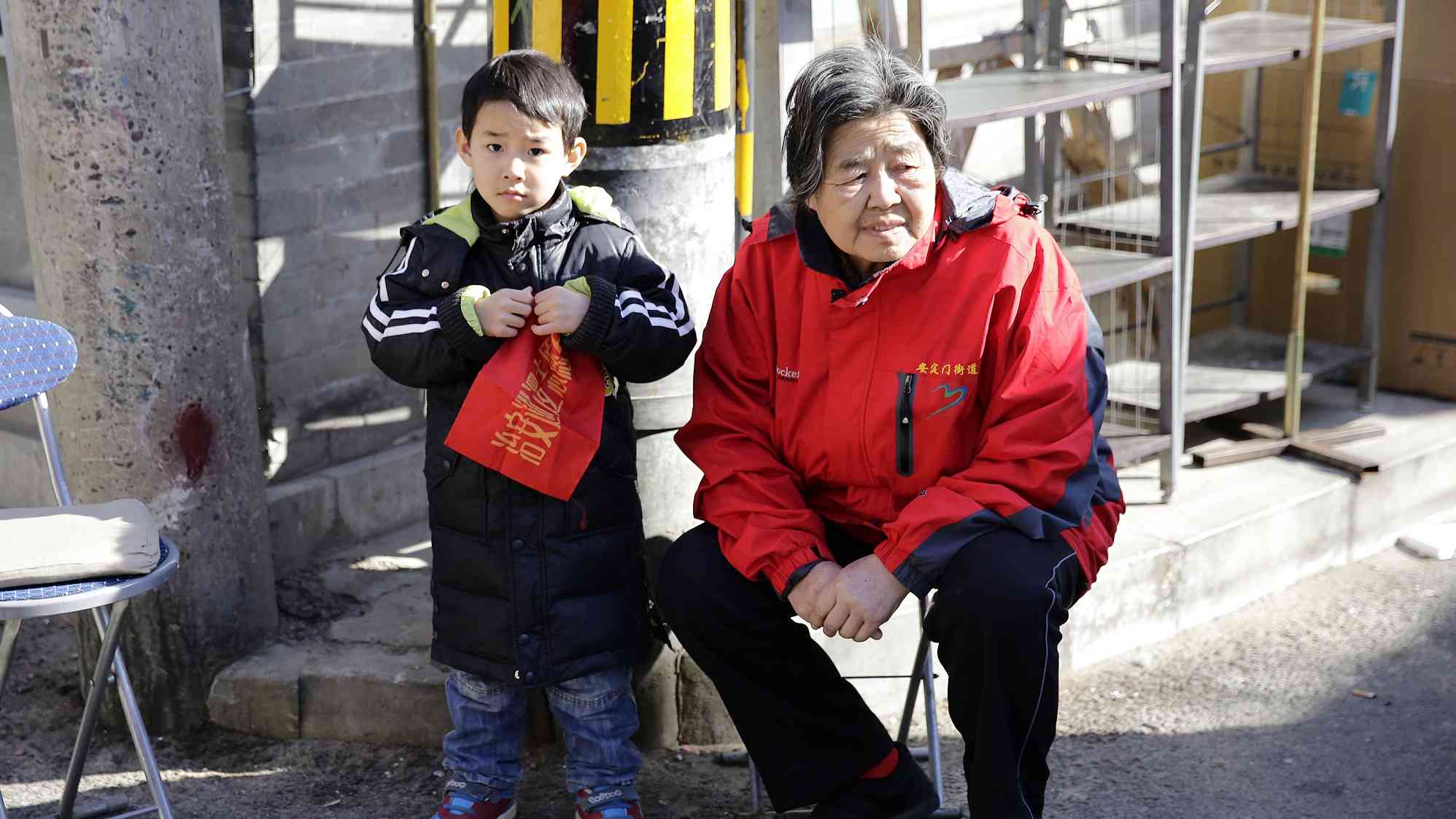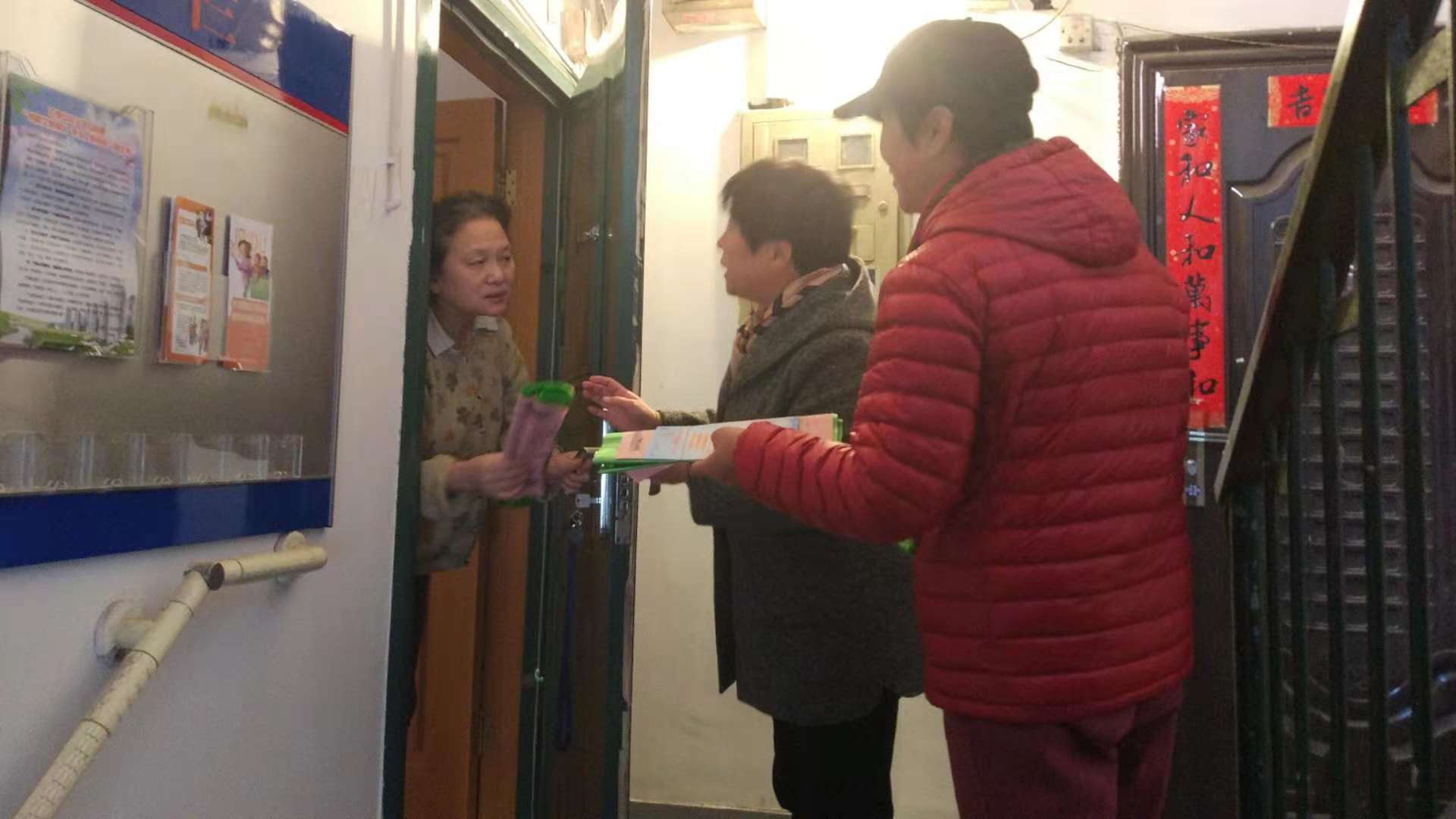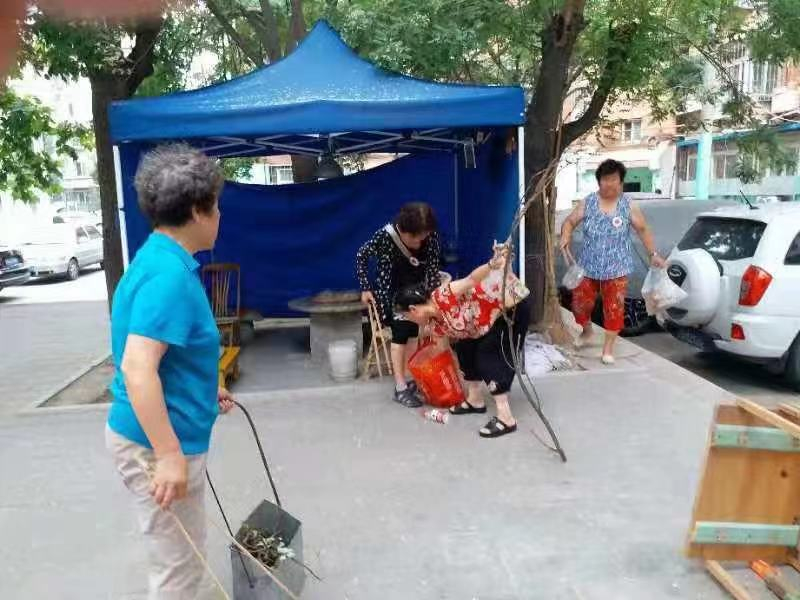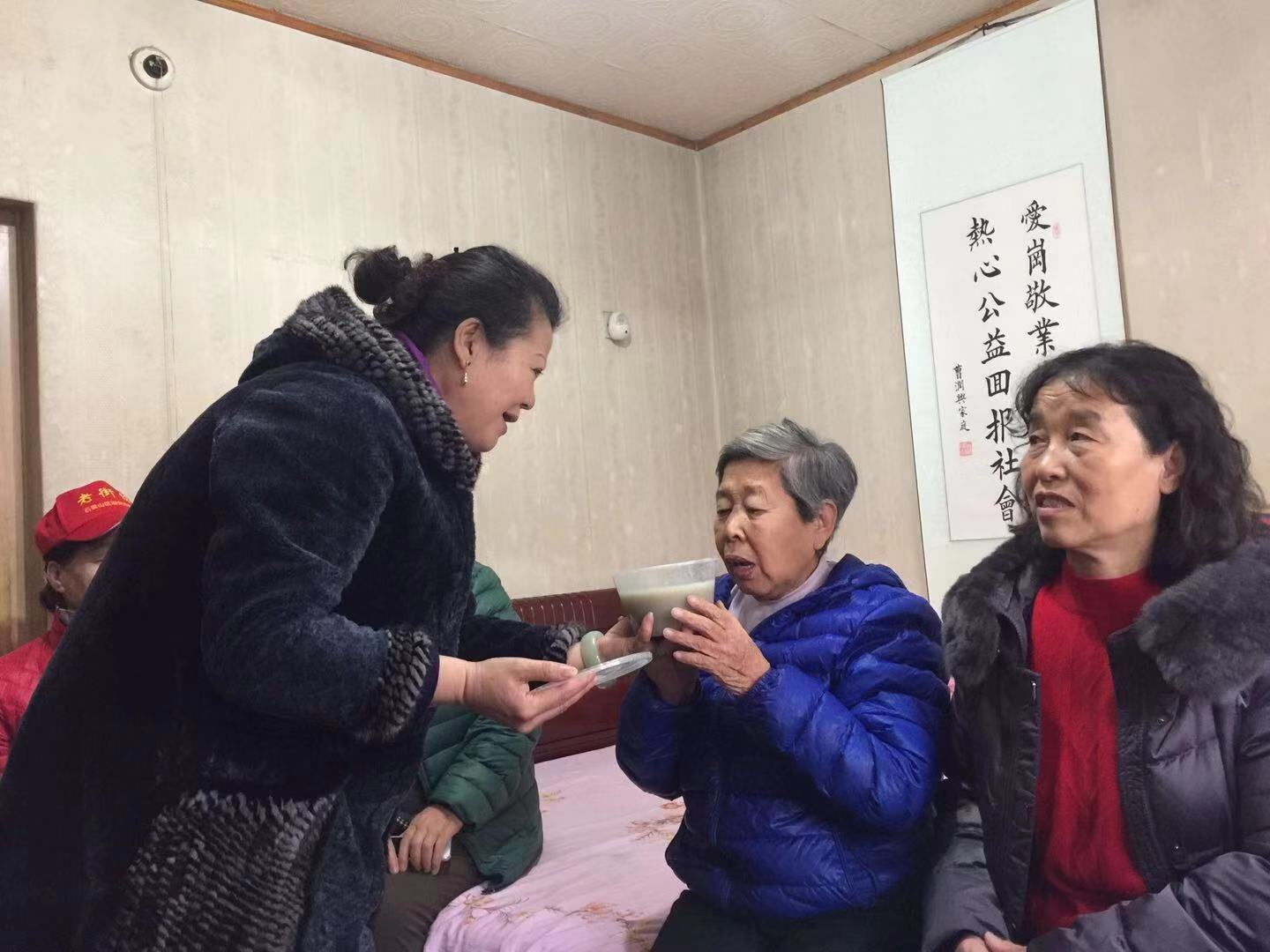
China
17:14, 14-Dec-2018
Beijing's elderly with red armbands dubbed as most mysterious group
Updated
16:19, 17-Dec-2018
By Yu Jing

The news that Chinese pop singer Chen Yufan was arrested in Beijing on charges of drug abuse rocked the Internet. The police bureau of Beijing's western district of Shijingshan, in a Weibo post, revealed that his arrest was due to a tip-off from a resident who was among a larger organized community, dubbed "Shijingshan Old Neighbors." Due to their sharp eyes and quick responses, netizens jokingly gave them the name - Beijing's most mysterious group.
Shijingshan Old Neighbors was one of the many communities in Beijing that play the role of public security volunteers, while the other well-documented include: Chaoyang masses, Xicheng Aunties and Haidian Internet users, etc, named after the district they operate in. Mostly composed of retired men and women, they patrol the streets while wearing the signature red armbands, acting as the "eyes and ears" of local police.
They also participate in the management of neighborhood affairs, playing a constructive role in building a better environment for the neighborhood they live in.

Su Lianying and another volunteer hand out educational materials from door to door to residents in the neighborhood. /Photo courtesy of Su Lianying
Su Lianying and another volunteer hand out educational materials from door to door to residents in the neighborhood. /Photo courtesy of Su Lianying
Eagle-eyed grannies able to spot anything suspicious
In the cold and frigid wind of Beijing, 56-year-old Su Lianying was out pounding the street of Shijingshan with her red armbands, patrolling for the Two Sessions, the most important political event in China.
Every 50 meters on the street stood two volunteers in their red outfit glancing around the neighborhood with discerning eyes, able to report on anything out of the norm.
The ability to do that stems from their all-encompassing knowledge of the surrounding neighborhood. Just like Su, all of the public security volunteers are long-time residents of the community they serve; their natural interest in protecting the community prompt them to sign up for the volunteer activity. Their primary responsibility ranges from patrolling the street, persuading residents to demolish illegal housing construction, mediating neighborhood disputes and handing out educational materials to residents about such subjects as fire safety.
Of around 610,000 people in Shijingshan District living in 150 communities, 23 percent have signed up to be volunteers. To put that into perspective, it means every community is home to more than 900 volunteers. Guo Guiyun, the director of the neighborhood committee surrounding Su Lianying, Sijiyuan Neighborhood Committee of the district, said that any the resident can sign up to become a volunteer. "There is no threshold," she said, adding that there is also no pay, not even subsidy.

Volunteers clean the street in the Sijiyuan community, Shijingshan Dicstrict, Beijing, China. /Photo courtesy of Su Lianying
Volunteers clean the street in the Sijiyuan community, Shijingshan Dicstrict, Beijing, China. /Photo courtesy of Su Lianying
The most mysterious intelligence organization?
The news that Chen Yufan's case was cracked with the aid of Shijingshan Old Neighbors led to netizens jokingly dubbed the group "the most mysterious organization associated with public safety." Some even called it "an intelligence organization."
"It is an exaggeration to say that public security volunteers can fight against criminals," chief of the neighborhood committee building section in Shijingshan District, Xu Fang said, "their job is to report suspicious activity in a timely manner so as to prevent crimes from happening."
Zhao Shuyun, 61, shared her experience about patrolling the street every year during the Two Sessions: "The strategy is to ask more," she said. Having lived in the community for over decades, she boasts of being able to recognize almost everyone. "Whenever I see unfamiliar faces in the hallways of the apartment buildings, I would always approach them and ask what brought them here."
Zhao recalled the time that she once saw a man who looked drunk, walking as if he was heavily intoxicated down the street. Seeing signs that raise her alarm, she called the neighborhood committee directly and reported the situation. "I might forget the telephone number of my home, but I will never forget the number of the neighborhood committee," she added.
Their workload was unusually heavy during important events, such as the Two Sessions and the Winter Olympics, during which they would patrol the streets on shifts. Each shift lasts 2-3 hours.

Guo Guiyun, director of the Sijiyuan Neighborhood Committee, pays a visit to an elder in the community. /Photo courtesy of Su Lianying
Guo Guiyun, director of the Sijiyuan Neighborhood Committee, pays a visit to an elder in the community. /Photo courtesy of Su Lianying
"To protect the community is to protect my home."
When there is no important event, Shijingshan Old Neighbors' main task is to manage neighborhood affairs, tapping into their great knowledge and relations with residents.
Last summer, Shijingshan district launched the campaign to demolish illegal modifications to the traditional structures that violated safety codes, and the Old Neighbors joined in to offer their support. For more than three months, roasted under the scorching sun and bitten by a mosquito, Su Lianying and Zhao Shuyun, together with other volunteers, demolished 10,019 illegal structures in Shijingshan.
When she first came to the house of a resident that requires demolition of illegal construction, Su was under attack. "He refused to let me enter his house and kept using abusive language against me," she said. The resident made secret subterranean expansion into his house with reinforced concrete, posing a security risk to all residents in the apartment building if the walls collapse. After being rejected on the first day, Su kept going in the following days and weeks to persuade the resident until one day she was let in.
Old Neighbors attributed their ability to do the hard talk to their long-term emotional investment in the neighborhood. With their telephone number given to every household in the apartment building, residents, when in need of help, would generally call them first instead of approaching the neighborhood committee, whether it is about the light bulb in the hallway in need of repair, or an elder man getting sick with no children around to help.
"There is no so-called work schedule," Su said, "I am a member of Shijingshan Old Neighbor no mater if I am wearing the red armband." To protect the security of the neighborhood, she said, is also to protect her own safety.

SITEMAP
Copyright © 2018 CGTN. Beijing ICP prepared NO.16065310-3
Copyright © 2018 CGTN. Beijing ICP prepared NO.16065310-3